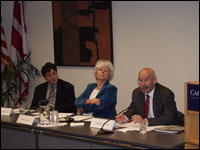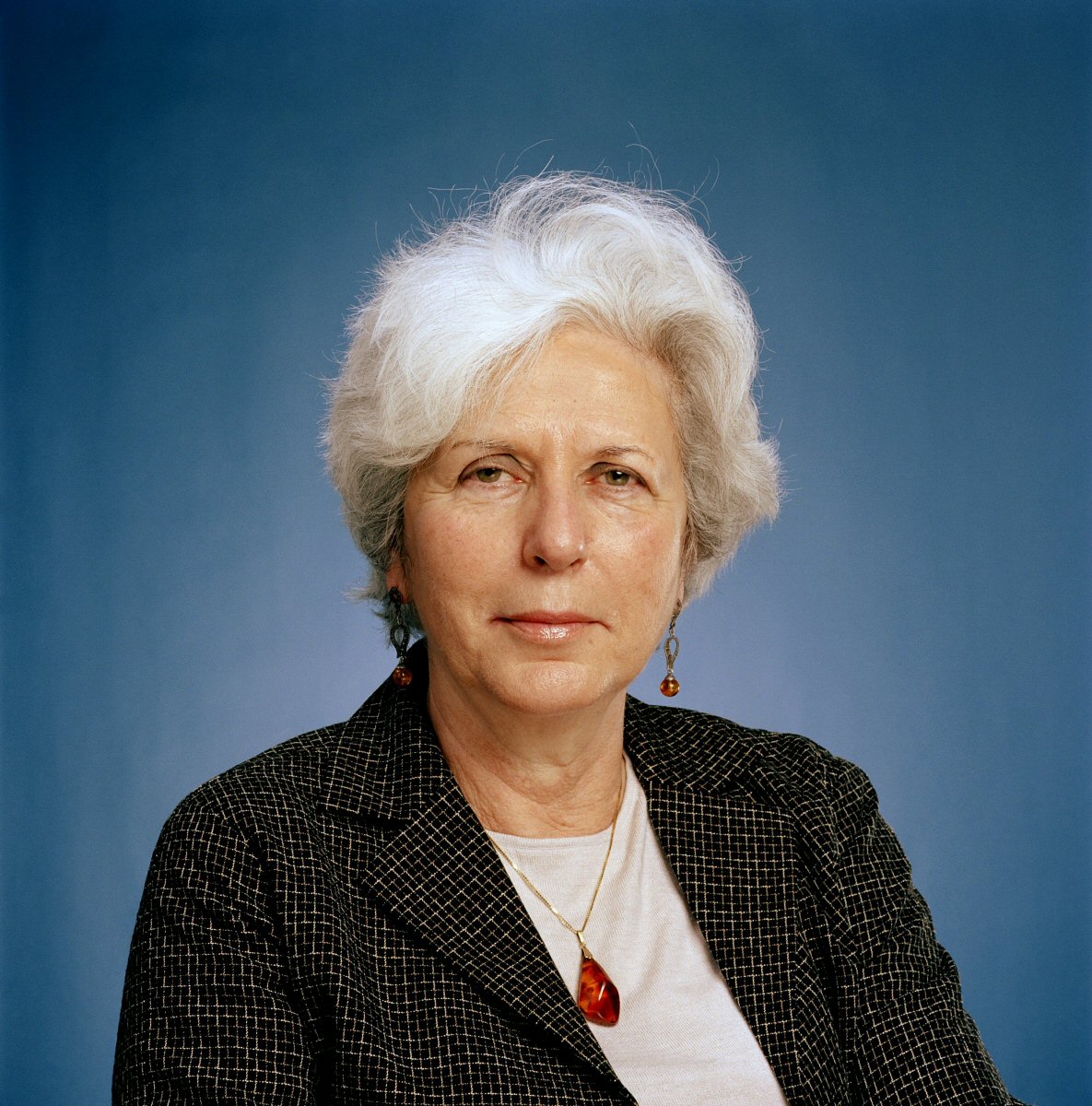{
"authors": [
"Rachid Tlemçani",
"Daniel Brumberg",
"Marina Ottaway"
],
"type": "event",
"centerAffiliationAll": "dc",
"centers": [
"Carnegie Endowment for International Peace"
],
"collections": [],
"englishNewsletterAll": "",
"nonEnglishNewsletterAll": "",
"primaryCenter": "Carnegie Endowment for International Peace",
"programAffiliation": "DCG",
"programs": [
"Democracy, Conflict, and Governance",
"Middle East"
],
"projects": [],
"regions": [
"North Africa",
"Algeria"
],
"topics": [
"Political Reform",
"Democracy"
]
}
Algeria: Recovery from Civil War
Thu, March 29th, 2007
Washington, D.C.
Presenter:
Rachid Tlemcani, Professor of Political Science, University of Algiers, and
Visiting Scholar, Carnegie Endowment for International Peace
Discussant:
Daniel Brumberg, Professor of Government, Georgetown University
Moderator:
Marina Ottaway, Director, Middle East Program, Carnegie Endowment for International Peace
After the prolonged civil war of the 1990s, violence in Algeria has considerably decreased and the economic and political situations are stabilizing Rachid Tlemcani argued. Tlemcani described the reform process in Algeria as a top-down process and questioned the extent to which such a process could go forward given Algeria’s status as a rentier state and the inability of external actors to influence its domestic politics.
IMGXYZ665IMGZYXA political liberalization project started in 1989 led to largely free and fair parliamentary elections in 1991, which brought to power an Islamist political party. The subsequent military intervention paved the way for a bloody civil war. Ascending to power in 1999, President Abdulaziz Bouteflika introduced a three-pronged peace plan, whose key features included diplomacy, national reconciliation laws, and the inclusion of moderate Islamists. On the diplomatic front, Bouteflika made a first step toward normalizing relations with Israel in 1999. Domestically, he introduced the Civil Concord Law in 1999 and the Charter for Peace and National Reconciliation in 2005. Both initiatives provided conditional amnesty to radical Islamists willing to surrender their arms. But Bouteflika’s arsenal of laws left many problems unsolved. First, security agents who were involved in some of the war’s worst massacres were not tried. Second, although the state officially acknowledged its responsibility for some disappearances, it minimized the number and swiftly tried to close this chapter without any real investigation.. Simply offering financial compensation to victims’ families did not remove the need to establish a national truth and reconciliation committee paving the way for a national healing process. The third step in the reconciliation process, the reintegration of some Islamist actors in the political process was more successful. Three Islamist parties are now active in Algeria and even some elements from the Islamic Salvation Front (FIS), have been reintegrated. Islamist parties are actively participating in government, an experience which has led to increased professionalization and expertise.
Daniel Brumberg pointed out that it will a long time for Algeria to recover from the civil war, which means that any reform process must be handled carefully. Three factors complicate the recovery process. First, Algeria lacks a long history of semi-autonomous institutions, necessary for the emergence of solid semi-authoritarian structure. Second, amnesty served military rather than political ends. It was aimed at dividing the Islamist movements; people did not have a sense of fairness; hearings were held in secret. The victims of both state and Islamist terrorism are unhappy with the outcome. Third, there is a lack of trust among political elites.
During the question and answer period, Rachid Telmcani noted that the regime’s policy toward national reconciliation rests entirely on financial compensation, and bans all forms of public discussion necessary for the emergence of healthy healing process. Despite the sensitiveness of the domestic situation, Telmcani insisted that the answer to Algeria’s problems must begin at the grassroots level. Given Algeria’s economic independence, external actors have little leverage to influence domestic developments.
Synopsis prepared by Dina Bishara, research assistant for the Middle East Program.
Carnegie does not take institutional positions on public policy issues; the views represented herein are those of the author(s) and do not necessarily reflect the views of Carnegie, its staff, or its trustees.
Event Speakers
Rachid Tlemçani
Former Visiting Scholar
Daniel Brumberg
Before joining the Endowment, Ottaway carried out research in Africa and in the Middle East for many years and taught at the University of Addis Ababa, the University of Zambia, the American University in Cairo, and the University of the Witwatersrand in South Africa.
